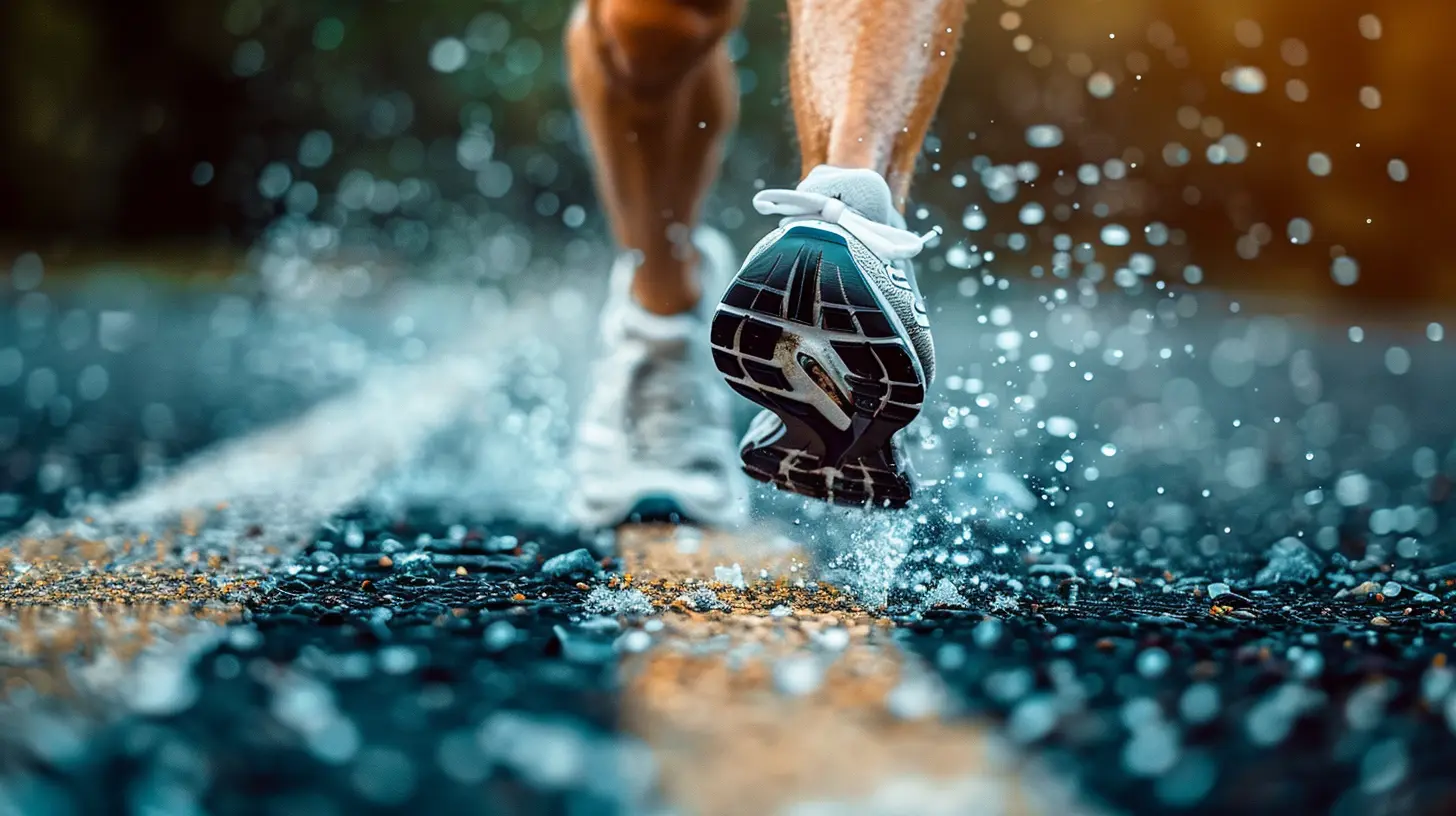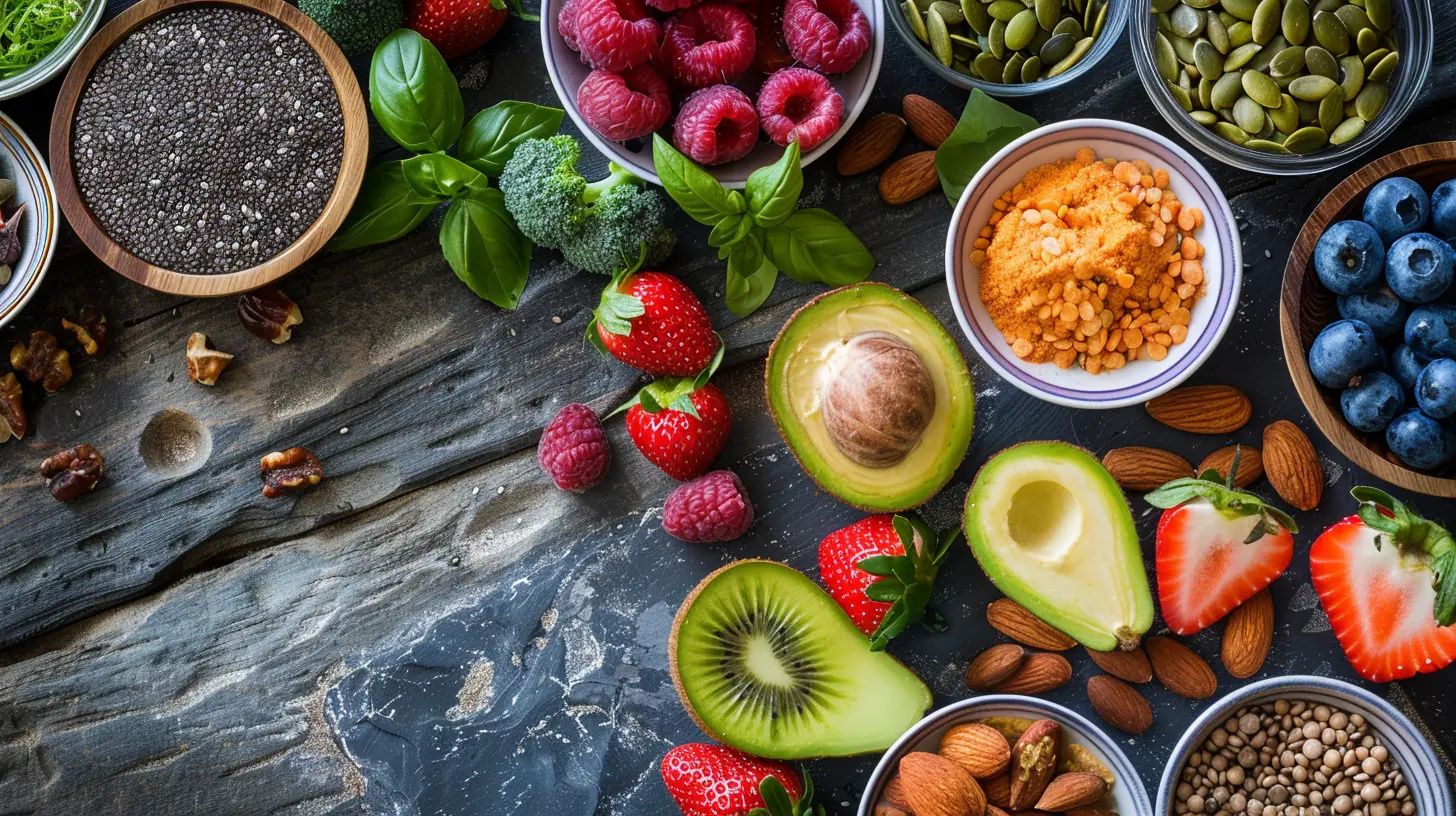Fueling for Success: Nutrition Tips for Endurance Athletes
17 June 2025
When it comes to endurance sports, your performance isn't just about training hard—it’s about eating smart. Think of your body as a high-performance engine: if you fuel it with the right nutrients, you’ll go the distance. But if you neglect your nutrition, even the most intense training won’t get you far.
So, what should you eat to power through those long runs, intense cycling sessions, or grueling triathlons? Let’s dive into the essential nutrition strategies every endurance athlete needs to sustain energy, recover faster, and perform at their best!

The Foundation of Endurance Nutrition
1. Carbs: Your Main Energy Source
Carbohydrates are your body's primary fuel source during endurance activities. When you work out, your muscles rely on stored glycogen (which comes from carbs) to keep you going.- Complex Carbs (like whole grains, brown rice, quinoa, and sweet potatoes) provide steady, long-lasting energy.
- Simple Carbs (like fruits and honey) give you quick bursts of fuel when you need it before or during a workout.
How Many Carbs Do You Need?
For endurance athletes, 3-5 grams of carbohydrates per pound of body weight per day is a solid target. Leading up to a big race or long training session, increasing carb intake (a.k.a., "carb-loading") helps maximize glycogen stores.2. Protein: The Key to Recovery
Endurance sports aren’t just about stamina—they also take a toll on your muscles. That’s where protein comes in. It helps with muscle repair and keeps you strong for the next session.- Lean Protein Sources: Chicken, turkey, eggs, fish, tofu, lentils, and Greek yogurt.
- Daily Protein Needs: Aim for 0.5-0.8 grams of protein per pound of body weight to maintain and repair muscle tissue.
A good rule of thumb? Have some protein within 30-60 minutes post-workout to speed up recovery.
3. Healthy Fats: Your Endurance Sidekick
Fats often get a bad rap, but for endurance athletes, they’re vital. Unlike carbs, fats serve as a long-term energy source, keeping you fueled during extended periods of exercise.- Good Fat Sources: Avocados, nuts, seeds, olive oil, and fatty fish like salmon.
- When to Eat Fats: Since fats take longer to digest, avoid heavy fat intake right before a workout. Instead, incorporate them into meals throughout the day.

Hydration: The Game-Changer
Dehydration is an endurance athlete’s worst enemy. Even a 2% drop in body weight due to sweat can affect performance. So staying hydrated is non-negotiable.4. The Right Way to Hydrate
- Before Exercise: Drink 16-20 oz of water 2-3 hours before your workout.- During Exercise: Aim for 7-10 oz every 15-20 minutes, especially for long workouts.
- After Exercise: Replenish lost fluids with at least 24 oz of water per pound of body weight lost.
If you’re sweating heavily, consider an electrolyte drink to replace sodium, potassium, and magnesium lost through sweat.
5. Electrolytes: Your Secret Weapon
Water alone isn’t enough when you’re training for long hours. Electrolytes help maintain fluid balance, nerve function, and muscle contractions. To prevent cramping and fatigue, include electrolyte-rich foods like bananas, coconut water, leafy greens, and salted nuts.
Pre-Workout Nutrition: Setting the Stage for Success
What you eat before training directly impacts how well you perform. The goal? Fuel up without feeling sluggish.6. The Perfect Pre-Workout Meal
A combination of carbohydrates and a little protein works best. Some great options include:- Oatmeal with banana and a drizzle of honey
- Whole wheat toast with peanut butter
- Greek yogurt with granola and berries
Timing matters, too! Eat a balanced meal 2-3 hours before exercise and have a small carb-based snack 30-60 minutes before if needed.

During the Workout: Keeping Energy Levels High
For workouts lasting less than 60 minutes, water is often enough. But for longer endurance sessions, refueling is essential.7. Mid-Workout Fuel Options
- Fast-Digesting Carbs: Sports drinks, energy gels, gummy chews, or even dried fruit.- Combination of Carbs & Sodium: Pretzels, bananas, or electrolyte drinks help maintain energy and hydration.
A good rule is to consume 30-60 grams of carbs per hour for workouts exceeding 90 minutes.
Post-Workout Recovery: Refuel and Rebuild
The recovery window is critical for endurance athletes. Your muscles are depleted, and your glycogen stores need replenishing.8. The Best Post-Workout Meal
A 3:1 or 4:1 ratio of carbs to protein helps speed up recovery. Some great recovery meals include:- A protein smoothie with banana and almond milk
- Grilled chicken with quinoa and roasted vegetables
- Chocolate milk (yes, really—it has the perfect carb-to-protein ratio!)
Aim to eat within 30-60 minutes post-exercise to maximize muscle recovery and glycogen restoration.
Supplements: Do You Need Them?
While whole foods are the best source of nutrients, some supplements can help endurance athletes go the extra mile.9. Useful Endurance Supplements
- Electrolyte Supplements: Essential for long training sessions.- BCAAs (Branched-Chain Amino Acids): May reduce muscle soreness and support recovery.
- Caffeine: Boosts endurance and focus when taken before a workout.
- Omega-3s: Help reduce inflammation and support heart health.
The Role of Rest & Nutrition
Even with the perfect diet, endurance athletes need rest and recovery to perform at their peak. Overtraining and under-fueling can lead to burnout, injuries, or even decreased performance.10. Listen to Your Body
- If you feel fatigued all the time, you might not be eating enough.- If muscles are constantly sore, you may need more protein.
- If you’re getting dizzy or lightheaded, check your hydration and electrolyte levels.
Final Thoughts: Eat to Win
At the end of the day, endurance sports are just as much about fueling right as they are about training hard. The right balance of carbs, protein, fats, hydration, and electrolytes can make all the difference in your performance and recovery.So, fuel up, train smart, and keep pushing your limits. Your body will thank you for it!
all images in this post were generated using AI tools
Category:
Endurance SportsAuthor:

Uziel Franco
Discussion
rate this article
2 comments
Brooks McGlynn
Oh sure, because nothing says "I can run for hours" quite like kale smoothies and quinoa salads. Who needs pizza and burgers when you can fuel your marathon with a side of pretentiousness? Happy chewing!
June 19, 2025 at 3:52 AM

Uziel Franco
Thanks for your input! While pizza and burgers can be enjoyed in moderation, nutrient-dense foods like kale smoothies and quinoa salads can truly enhance endurance and recovery. Balance is key!
Paris Matthews
Great insights! I'm curious about how specific foods can impact performance differently. Anyone tried unconventional snacks during training? Would love to know!
June 18, 2025 at 4:17 AM

Uziel Franco
Thanks for your interest! Unconventional snacks like sweet potatoes, nut butter packets, and dried fruits can provide sustained energy without causing a crash. Experimenting during training can help find what works best for you!
![The Engine of the Team: How [Player Name] Drives Success](/pictures/blog/small/the-engine-of-the-team-how-player-name-drives-success_1.webp)

